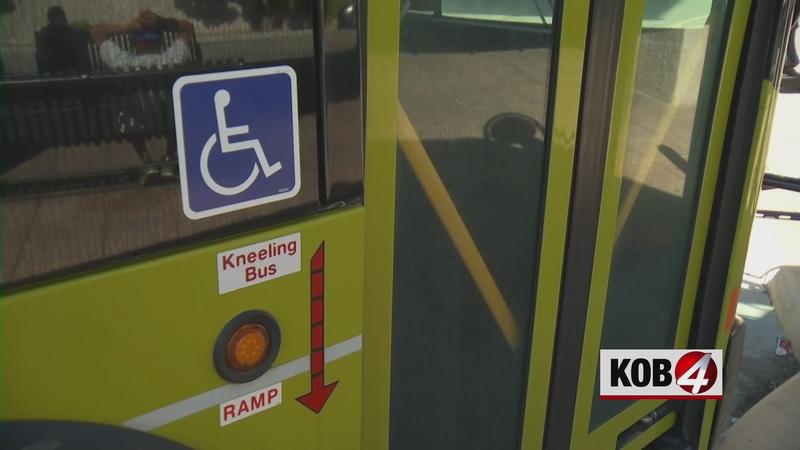People with disabilities facing numerous challenges during pandemic
[anvplayer video=”5029415″ station=”998127″]
ALBUQUERQUE, N.M.- Little things like wearing a mask can have big impacts on everyday life in ways many people may not think about.
"When I go out in the world as a deaf person, I’m always having a difficult time lipreading," explained disabilities consultant Lisa McNiven.
But the difficulties don’t stop there.
"When COVID hit us in March 2020, things changed so fast," said Governor’s Commission on Disability Executive Director Linnea Forsythe.
Everyone was forced to adapt, but everyone wasn’t considered in the changes.

The state looked at seven disability focus groups, including those blind or visually impaired and deaf or hard of hearing, then looked into how COVID impacted their daily lives.
"Education, employment, transportation, housing, access to food, social experiences and voting, and more, were some of the categories," said McNiven.
With all the Zoom calls and virtual learning, high speed internet was more important than ever.
"A sign language interpreter that can have movement that’s really fast and if you don’t have a matching internet and service, to be able to see the interpreter clearly then their signing will be very slow and out of sync," said McNiven.
This last year, parents also stepped into the role of teacher.
Parents and students living with disabilities had an extra challenge.
"They didn’t have the technology, the assistive technology, that they needed in order to participate in their classes," explained Forsythe.
The same obstacle happened at work.
"You might have the screen reader technology that you like… Your desk in such a way so that if you’re a wheelchair user you can maneuver, the way that you need to and when you go home, nothing is set up," said Forsythe.
Grocery shopping became more complicated.
"Individuals who can hear who are blind and visually impaired, have come across issues when they go shopping independently at the store when they come across, issues that have to go down one aisle in a certain direction, and come down another aisle in other direction, but there’s signage that they cannot see," explained McNiven.
Social distancing also brought on a lot more anxiety. Not being able to see if someone was at a safe distance was one thing, not being able to get the services you needed because of that distance was another.
"Working with the deaf blind person, they cannot see their hand to get the language, they need to feel it. So, with hand-to-hand contact," said McNiven.
There were even reports that handicapped parking spaces were being used for outdoor dining.
As New Mexico opens up, the state and those living with disabilities hope everyone will include them in the planning.
"How are we going to change. You know these environments that we set up with people with disabilities in mind?" asked Forsythe.